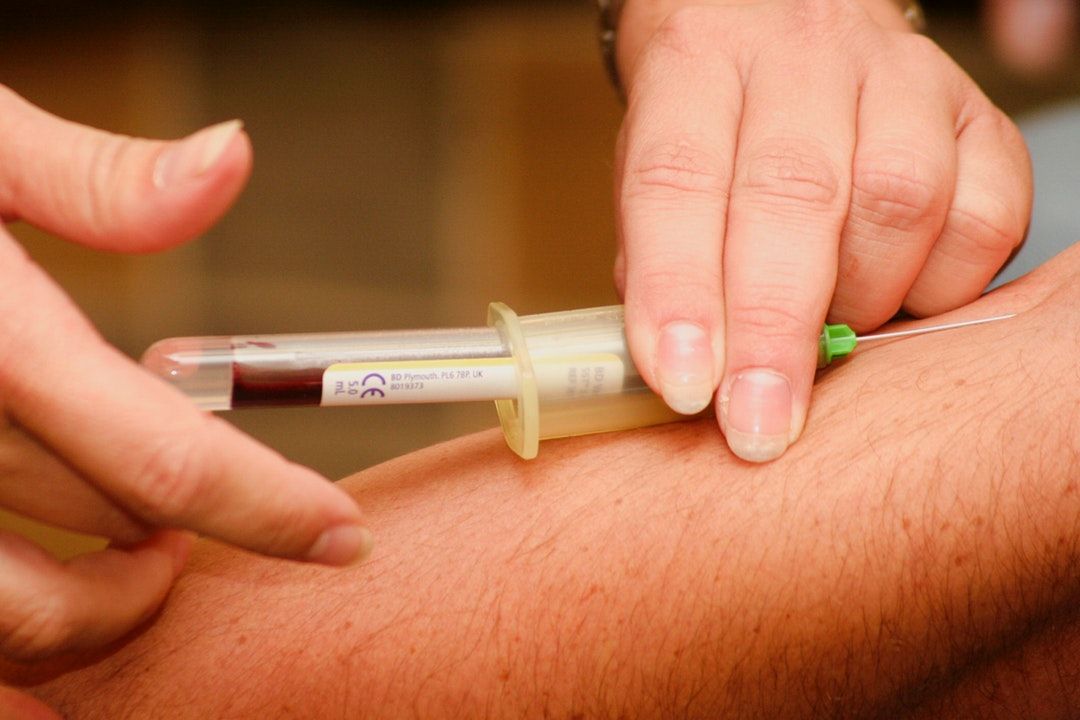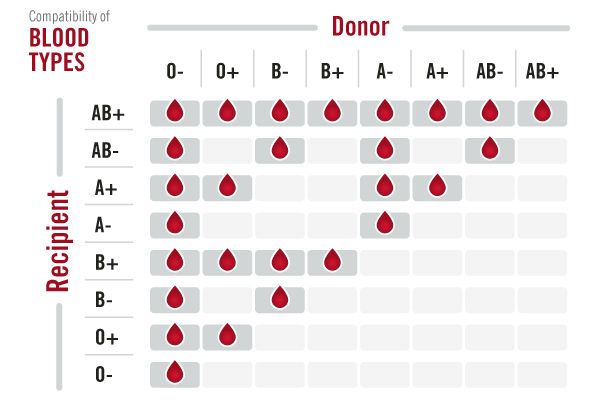Learning Blood Types

As part of my recent surgery, it was the first time I had my personal information entered into a digital hospital system available to view at my leisure. Part of that was my blood type and it was the first time I could confidently say I knew my blood.
The world most commonly uses the ABO Blood Group system, which wasn't coined or discovered until 1901 by Karl Landsteiner. However, there are a few others less popular notations for blood from the MNS System, Kell System and Lewis System for blood grouping.
These creates the ABO blood types of
- O
- A
- B
- AB
In addition to the letters, a positive or negative is attached based on the Rh factor of the blood type. This correlates to the Rh antigen and is quite simple. If the red cells have the antigen - it is Rh-positive. This produces a larger list of types:
- O- / O+
- A- / A+
- B- / B-
- AB- / AB+
So take a child with two parents and you can come up with the following blood types, which can even be broken with very rare situations.
| Blood Type | O | A | B | AB |
|---|---|---|---|---|
| O | O | O, A | O, B | A, B |
| A | O, A | O, A | O, A, B, AB | A, B, AB |
| B | O, B | O, A, B, AB | O, B | A, B, AB |
| AB | A, B | A, B, AB | A, B, AB | A, B, AB |
So taking a deeper dive into these types results in:
- A - Antigen A in Red, Antibody B in Plasma
- B - Antigen B in Red, Antibody A in Plasma
- AB - Antigen A & B in Red, No Antibody in Plasma
- O - No Antigen in in Red, Antibody A & B in Plasma
So from that information. There are two interesting types:
- Type O Negative - Universal Red Cell donor
- Type AB - Universal plasma donor
To build a true donation of giving/receiving would be too much work for this blog, so instead an image provided by HÉMA-QUÉBEC

So as you can see. AB+ can receive from all and O- can give to all. So with that, let's examine the average rareness of the types. [source]
- O Positive (37.4%)
- A Positive (35.7%)
- B Positive (8.5%)
- O Negative (6.6%)
- A Negative (6.3%)
- AB Positive (3.4%)
- B Negative (1.5%)
- AB Negative (.6%)
With that list however, it changes rapidly from race to region. For example, India's most common blood type is B Positive. This all comes into play when you need a blood transfusion.
Thanks to RedCross for most of the research material - I am O Negative, a universal donor.
